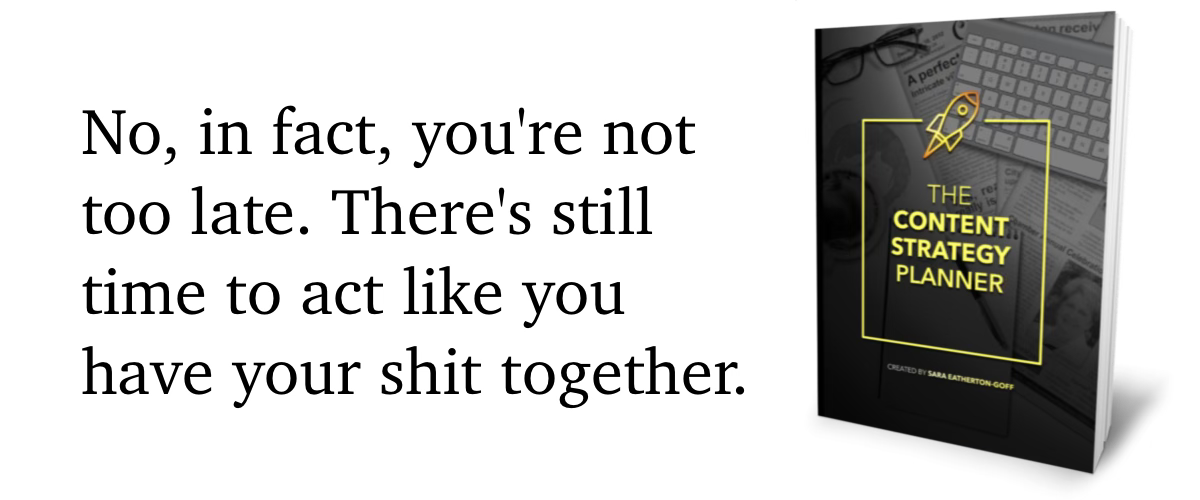Rest
An update, new ways of incorporating rest, productivity tips, and some entertainment recommendations for you.
This newsletter has moved!
To receive new and infrequent musings, the latest fiction and non-fiction narratives, updates, and "life nuggets”, subscribe here.
Well, I survived anesthesia! Woohoo!
I mean, it’s roughly one in 200,000 people who don’t wake up after anesthesia.1 And this being my 12th surgery and 15th anesthesia, I figured I’d pull through.
Still, waking up after is always a relief. Except for the whole getting woken up thing…. I’m incredibly annoyed when I hear, “Sara, it’s time to wake up now. Come on, Sara. I know you’re sleepy, but you need to wake up.”
It’s like being a teenager all over again. I want to say, “Shut up! Just let me finish this dream!”
But I never get to.
Maybe that’s a good thing.

Currently, rest is my priority.
I told my therapist the week before surgery that I don’t mind procedures. They force me to take a break. They excuse my brain from feeling guilt over watching movies and TV shows and YouTube all day because healing is my only job.
(Yes, I have to consider rest and healing a job to do it. Yes, that’s problematic.)
They also provide me with a break from responsibilities, some reprieve and alone-time while waiting for a procedure. And some direct attention focused on my well-being, too.
I wouldn’t like it long-term, but having nurses check in on me and seemingly prioritize my care is something I’m so grateful for. And I convey my appreciation for the work nurses do. It feels like a positive exchange all around.
But, even before surgery, I started incorporating rest more in my day-to-day to avoid Autistic meltdowns (e.g., intense, uncontrollable responses to emotional or sensory triggers. Meltdowns are caused by a central nervous system overload in Autistic people. Autistic meltdown states are one of the most dramatic and aversive parts of Autism). Like the one I had last week.
I pushed and pushed, and my body and brain pushed back. And I lost. So did the people who love me who had to witness and experience it, too.
How do you prioritize rest?
Some readers have responded to previous posts saying they schedule breaks throughout the day.
The occupational therapist of one of my kiddos suggested I don’t bypass Focus (Emphasis — iOS) timer app’s breaks because those brief moments away from the task can make a huge, positive impact on not only my ability to focus during working sessions, but also to offer myself more calm in between.
She’s not a writer, though. And when you’re on a roll (and you’re not neglecting feeding yourself, overall bodily movement, or sleep), I don’t see why rolling with it is such a bad thing.
Although, that just reveals how stubborn I am….
(The OT also said that using your non-dominant hand more often improves memory.2 I’m looking forward to that, too, while my dominant hand heals.)
Other ways I’ll prioritize rest are by extending writing session times to avoid skipping breaks being one way I’ll incorporate rest more. Meaning, based on my current workflow, instead of 30-minute writing sessions where I skip the 5-minute break and just roll into another session, I’ll re-set the app to do an hour-long work session with no-skip 10-minute breaks in between.
Also, stopping when the body tells us it’s had enough is another important practice. My brain is the one I have to worry about. My body has always been the voice of reason — the “guiding light” I ignore because my brain can be incredibly narrow-minded when it comes to progress. I mean, it is hard to reason “take more breaks to get more work done,” amiright?
I also want to utilize 20 to 30-minute naps when needed, too. Today’s a nap-necessary sort of day. I’m exhausted. Sure, lying down isn’t the most comfortable thing right now; I have to keep my arm above my heart for almost a month, but the rest of me will benefit from a sprawl on the bed, at least. And that’s what matters.
So, how do you rest? How will you?
I’m usually one of those post-menopausal women who get worsening brain fog3 post-anesthesia.4 It sucks (hence all the guilt-free screen time I allow myself after surgery. Now). But I knew what to expect this time, and I planned to give myself grace regardless.
I learned after COVID infection and two anesthesias within a 6-month span, how inflamed the brain gets after,56 and how that affects my ability to think and process. It sucks that it took almost 5 months to recover from that period of brain fog last year. Then, as soon as it lightens, I had a mast-cell flare and I’m right back to being inflamed and foggy. Then, as soon as I begin getting out of that, I had surgery….
However, this is the first post-menopausal, post-anesthesia experience where I've had zero (additional) brain fog after. I'd say there's definitely something to practicing with my non-dominant hand pre-surgery that might've lead to this more positive post-operative experience.
Anyhow, by prioritizing rest, I’m extending to myself a healthy dose of patience, healing, and kindness. And that’s the most I should be doing right now.
So, I'll give you a rest today too. In lieu of a long post this week, here are 10 things I thought you might find interesting or enjoyable in your own rest or downtime:
Watching The White Lotus on HBO Max. Although “late” to it, Brian and I binged its two seasons in three weeks. I find it more and more interesting in hindsight. It’s brilliantly written — seriously, the effortless social commentary and ability to infuse multiple belief and experiences in a fair, organic, and clever way; allowing us as viewers to gain perspective on different points of view has got the show still in my mental forefront, even weeks later. It’s well-acted, the settings are sublime, the cinematography is incredible (just chill on the water lapping the camera shots, yo); the characters are complex, and it shows that even (some) terrible humans have good sides or soft spots.
Watching Shrinking on Apple TV+. I’m enjoying it. It wasn’t the hilarious comedy I thought it would be, but the dry-humor bits are fun, and I like the “humanness” of the show. Also, seeing Harrison Ford as a layered, funny, interesting older dude is a nice change of pace.
Absolutely loving the iWeigh podcast by Jameela Jamil. “A podcast against shame” that covers various topics. Frequent ones are on self-love, self-care, body positivity, and overcoming trauma, mis- and disinformation, and more. I highly recommend it for all women and gender non-conforming folks. But also for men from any background who respect women and ally with us.
Also, watching Abbott Elementary on HBO Max with the family. It’s cute.
(Still) reading Unmasking Autism by Devon Price. I’m hopeful I’ll finish this during my recovery time (although it’s really difficult to hold open paper books right now). But it is exactly what the title says: a thoughtful guide to dropping the neurotypical camouflage for improved mental and physical health, and for elevated quality of life as Autistic people.
I’m obsessed with dermatologist Dr. Dray’s YouTube Shorts and overall channel, as well.
Another winning podcast is Struggle Care by licensed therapist KC Davis. She’s a TikTok sensation for all the right reasons, and her podcast covers self-care, “mental health, care tasks, and more.”
Okay, last show recc: Finally, Ted Lasso is back on Apple TV+. Just two episodes in so far, but we’re enjoying it. (Although I think 3 seasons is a good stopping point for it.)
Reading Bomb Shelter: Love, Time, and Other Explosives, an essay collection by Mary Laura Philpott. The Washington Post said of the book, “A beautifully wrought ode to life… a precious gift to the world.” This is my chaser to the heavier content I’m already reading. It’s funny and interesting, with plenty of life-takeaways to absorb along the way.
I appreciate you.
My best,
Sara
subscribe to | my free, sporadic newsletter
get the | Content Strategy Planner
support my work and | “buy me a coffee”
visit the website | segwrites.com
P.S. I predominantly write from my personal experience as an Autistic person with ADHD, chronic illness, Anxiety, and more. Each of these factors can influence my individual experience overall, as well as my experience of each condition.
What I share is not a substitute for medical advice.
Self-identification of Autism (what many call “self-diagnosis”) is perfectly valid. If a personal Autistic experience I write about resonates deeply with you, consider these resources on Embrace Autism (starting with the Autism Quotient Test) as a first step. If professional assessment is important to you or your life has been impeded enough that you may need to qualify for Disability, you can print your results to bring to a diagnostician. (Having all those tests completed in advance saved me a lot of money!) Although there are many more diagnosticians available, here is a comprehensive list to get you started.
Lastly, some of my opinions may have changed since I first wrote the piece that lead you here.
Comment with any questions, and I’ll respond as soon as I can.
The Truth About Postmenopausal Brain Fog, Invigor Medical
Anesthesia Brain Fog: Causes, Symptoms, Remedies, NeuroSection9
How To Reduce Inflammation In The Body Fast After Surgery, Health In Center
Does COVID-19 damage the brain?, Harvard Health




